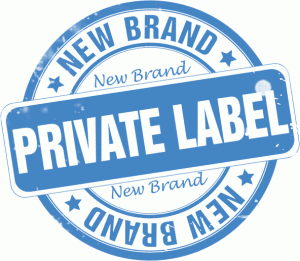Despite the recent progress made by several Gulf Cooperation Council (GCC) retailers in developing their private labels, the industry is still lagging behind in comparison with western markets. Although regional retailers are well aware of the private labels’ potential, they have not fully leveraged their benefits. As the competition intensifies, regional retailers need to develop optimal private label strategies that can help them further enhance profitability and consumer loyalty.
With the evolving retail landscape, consumer attitude towards private label products has changed dramatically over the years in the GCC region. According to a 2014 Nielsen survey, nearly three-fourth (71%) of the respondents in Middle East and Africa agreed that their perception towards private label products have improved in recent times. Gone are the days when private label products were just seen as cheaper alternatives of national and multinational branded products.
Today, private labels include some innovative products that have no branded equivalent. Some of the premium private label products are superior to branded products in quality. Despite the growth of market share of private label products in recent years, the GCC retail industry is still lagging behind major matured retail markets in terms of private labels presence. Retailers now realize the need for making private labels an integral part of their growth strategies that can help them boost revenues and customer loyalty in the current retail environment characterized by intense competition and consolidation.

The retail industry landscape in GCC region is constantly evolving, with the modern trade replacing traditional independent retail trade. As of 2013, the total occupied modern retail sales area was 5.3 million square meters. This is projected to reach 6.6 million square meters in 2018.
Retail industry has witnessed tremendous growth over the last decade and is one of the fastest growing sectors of the region. The growing expatriate population, increased purchasing power of consumers, modern lifestyles, and increasing influx of tourism revenues are fueling growth in the region’s retail sector. According to a 2015 report from Alpen Capital, retail sales in the GCC region are expected to grow at a CAGR of 7.3% between 2013 and 2018 to reach US$ 284.5 billion. Sales in supermarkets and hypermarkets across the region are expected grow at a CAGR of 9.2% during the same period.

Given the retail industry’s strong growth outlook, a lot of potential opportunities exist for retailers to grow and differentiate themselves with private label strategies. However, till now retailers have largely failed to capitalize on this. Private label products have started to penetrate and enjoy success only across few product categories such as home care, packaged food, beverages, and hygiene products. Not only there is still an ample room for further growth in these categories, but the market remains untapped for other product categories such as personal care and hygiene products, and food categories including frozen food.
With the increased competition and industry consolidation, retailers need to re-think their strategies that can enable continuous growth and innovation. Therefore, many retailers are increasingly using private label as a strategic weapon to differentiate themselves and outperform competitors. According to SIAL Middle East, a leading event organizer in the region, 88% of the Middle East retailers they interviewed in 2014, were investing in private label expansion. Spinneys UAE recently announced to boost the exports of private labels in Middle East and North Africa (MENA) countries due to the increasing demand and recent success enjoyed by company’s private label offerings. Similarly Tesco, LuLu, and Carrefour have also announced their plans to further develop their private label offerings in the region within both food and non-food segments.
There are significant opportunities for GCC retailers in the private label space as these products are more profitable than branded products. By cutting the middleman (distributor) out, and by avoiding higher marketing costs associated with branded products, private labels enable retailers to increase gross margins. As today’s price conscious consumers are looking for best value for their buck, private labels offer consumers a wider range, better quality, and fairly priced products, thus creating a win-win option for retailers and customers in the current retail landscape. Moreover, private labels offer retailers with more bargaining power with their suppliers. It also helps retailers to have better control over their product offerings and category management. Although the opportunity for GCC retailers in private labels is clear, retailers in the GCC region have failed to reap their full potential. This is mainly because retailers within the region face an array of challenges.
Firstly, sourcing is a significant challenge for retailers as there are very few manufacturers in the region who have the capabilities to supply a range of high quality private label products. Most of these companies have existing manufacturing contracts with multinational retailers, which prohibit them from creating private label products for regional players. Other manufacturers and suppliers in the region face acute operational issues such as quality and supply chain management deficiencies that automatically make them unfit.
Secondly, the region has a diverse range of consumers of different nationalities, income levels, and other social demographics. Understanding their diverse needs is a challenge for retailers. So far, most of the retailers have focused solely on value, and failed to gauge the exact needs and expectations of these consumers due to lack of customer intelligence and the retailers’ limited ability to customize their private label offerings as per the regional market needs. GCC retailers have also failed to assess the current gaps in their assortment, and how they can utilize their private label offerings to fill these gaps.
Given the retail industry’s robust growth outlook, in order to grow and capture a bigger market share, retailers are using organic as well as M&A strategies. Therefore, M&A activity has also picked up within the industry. In the past few years many deals have taken place that involved region’s leading retailers such as Savola Group, Damas International, LuLu Group, and Al Meera Consumer Goods Co. As the retail landscape continues to consolidate, competition among retailers in the GCC will only get fiercer.
Private label is likely to become one of the key battlegrounds for retailers looking to succeed in these markets. As a first step, retailers should integrate private label with the company’s overall business strategy. Further, in order to succeed, retailers will have to develop a better understanding of the retail market landscape as well as shopping behavior of their target consumer segments. This will help them create targeted private label strategies tailored to shopper needs with optimal private label categories, branding, packaging, and pricing strategies. By collaborating with experienced manufacturers, GCC retailers need to ensure that right products are on the right shelves at the right time and price. It is critically important for retailers to strike the right balance between price and value. Cracking this code will allow retailers to strengthen growth and customer loyalty beyond 2015.






